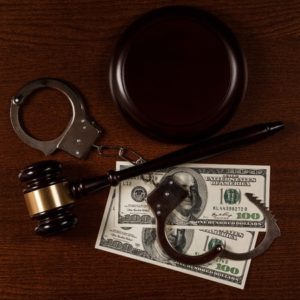 “If the assistant prosecutor or deputy attorney general has reason to request that the defendant have no contact with the victim of the alleged offense, or no contact with any other witness(es) who may testify concerning the offense, the prosecutor shall object to defendant’s release on recognizance pursuant to N.J.S.A. 2A: 162- 17(a), and shall ask that the defendant be released, if at all, under N.J.S.A. 2A:162-17(b), and that the defendant be ordered as a condition of release to have no contact with the victim and/or witness(es). See also subsection 6.2.3. The prosecutor shall as soon as practicable advise the victim and/or witnesses of the terms of any such pretrial release condition(s) imposed at the first appearance.”
“If the assistant prosecutor or deputy attorney general has reason to request that the defendant have no contact with the victim of the alleged offense, or no contact with any other witness(es) who may testify concerning the offense, the prosecutor shall object to defendant’s release on recognizance pursuant to N.J.S.A. 2A: 162- 17(a), and shall ask that the defendant be released, if at all, under N.J.S.A. 2A:162-17(b), and that the defendant be ordered as a condition of release to have no contact with the victim and/or witness(es). See also subsection 6.2.3. The prosecutor shall as soon as practicable advise the victim and/or witnesses of the terms of any such pretrial release condition(s) imposed at the first appearance.”
Again, we see mischievous provisions buried in the middle of this voluminous Attorney General Directive. The mischief is not clear on its face, but the following logic cannot seriously be disputed. Here, at pages 53 and 54 of the 84 page document, we see that prosecutors are essentially directed to object to any and all releases on personal recognizance. This is because of the fact that most any case will involve an alleged victim or witness (presumably meaning “lay witness” as opposed to a police officer). The only remaining cases would be those involving victimless drug possessions. In the case of victimless drug possessions, prosecutors are directed to object to a release without pretrial conditions because of the alleged high likelihood of drug possessors (including petty marijuana offenders) to re-offend. The language above is particularly disturbing in light of the fact that the bail reform legislation is supposed to impose the least burdensome conditions on defendants, i.e. only those conditions reasonable necessary to ensure the safety of the community at large and to ensure that defendants appear at future court dates. The directive, on the other hand, presupposes that no one will come to court without pretrial conditions. Our courts recognize the empirical evidence showing that very few people abscond from pending charges.
